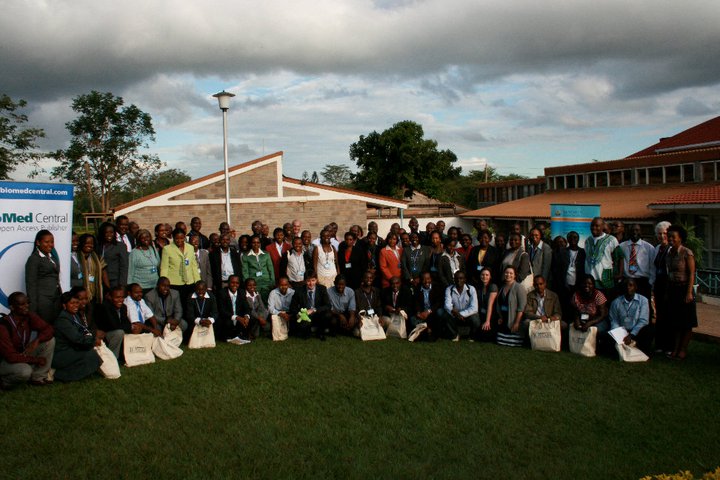Despite its vast population, only 0.7%
of research findings come from Sub-Saharan Africa. A large factor being that accessibility to a
wealth of scientific reports is limited due to high journal subscription costs,
especially affecting those in the developing world. Open Access journals allow unrestricted
access to this information to anyone, but despite the obvious benefits OA has
for low income countries, currently only 1% of journals in the Directory of
Open Access Journals (DOAJ)come from
Africa.
 Open access to information in the African nations is not
Open access to information in the African nations is not
without its obstacles, as outlined by an article in BMC Health Services
Research , but 2010 has seen major headway in increasing awareness
of OA across the continent. BioMed
Central is an OA publisher,
which means we provide open access to all our journal articles. By charging author-side
fees we enable readers to access the articles at no cost. To aid scientific
progress in the developing world we also waive this article-processing charge
(APC) for our researchers in over 90 low-income countries and last
week we held the inaugural ‘Open
Access Africa’ conference in partnership with Computer Aid at Kenyatta University in Nairobi, Kenya. The
workshop was a great success and people
from across the globe came together to discuss the benefits of Open Access in
an African context.
Stellenbosch University in South Africa also recently became the first
academic institution on the continent to
sign the Berlin
Declaration on Open Access to Knowledge, which puts them at the forefront
of the open access movement in Africa .
Alongside this they have also launched the SUNscholar institutional repository, setting
Stellenbosch as a flagship OA institution for other universities to follow.
Progress like this, as well as UNESCO
highlighting Open Access in Africa as a particular focus of its OA programme,
can only mean the future looks bright for advancing the access to scientific
knowledge in the developing world.
Comments